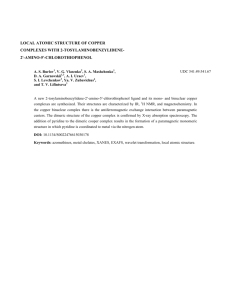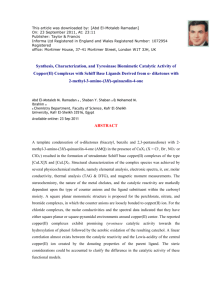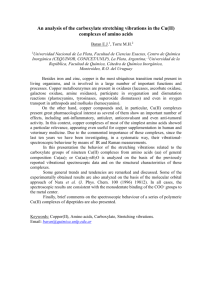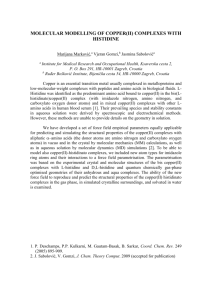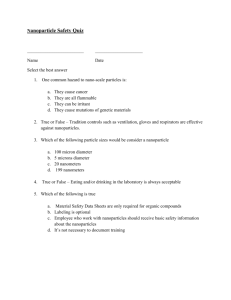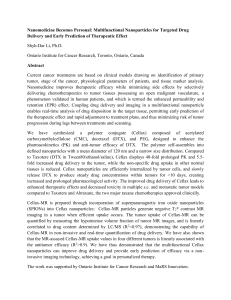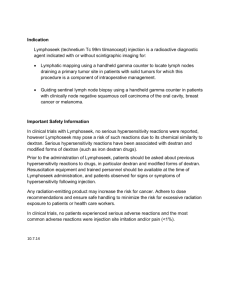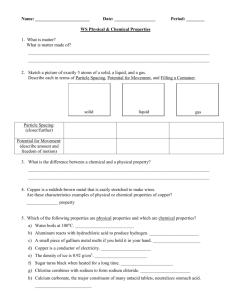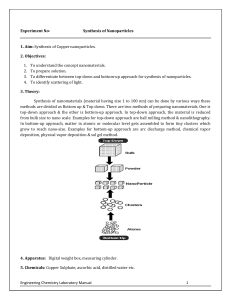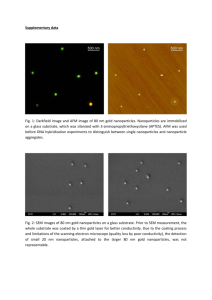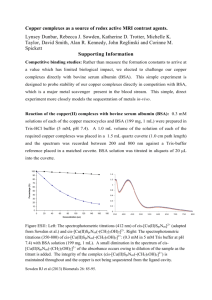Synthesis of Biocompatible Copper Nanoparticles for Cancer
advertisement
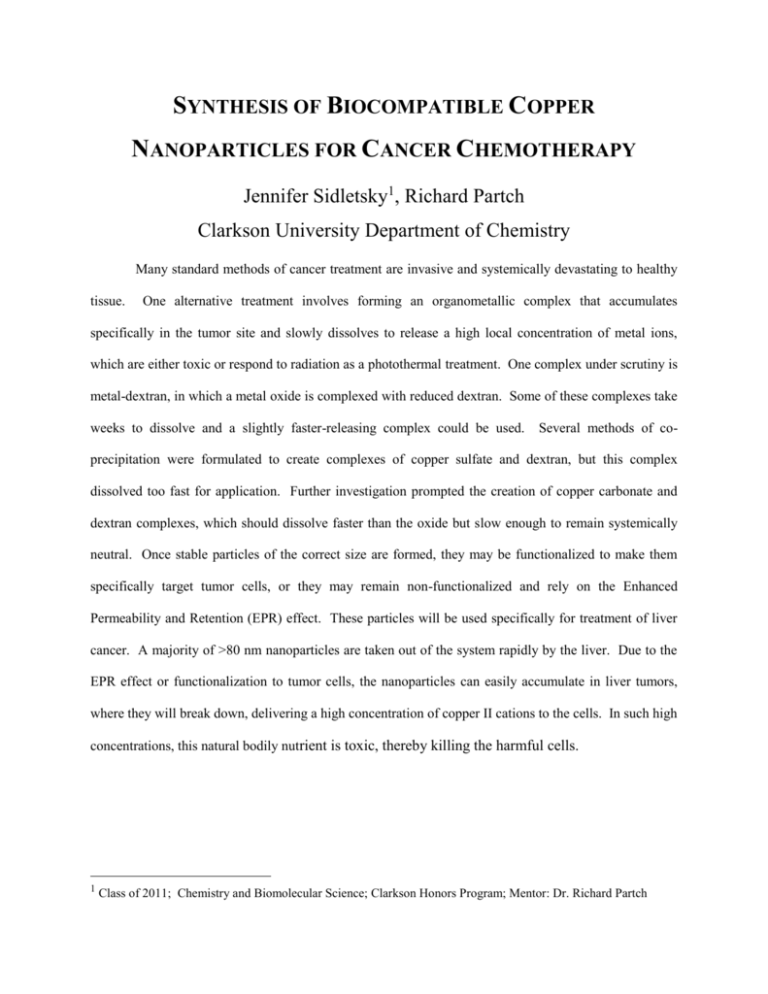
SYNTHESIS OF BIOCOMPATIBLE COPPER NANOPARTICLES FOR CANCER CHEMOTHERAPY Jennifer Sidletsky1, Richard Partch Clarkson University Department of Chemistry Many standard methods of cancer treatment are invasive and systemically devastating to healthy tissue. One alternative treatment involves forming an organometallic complex that accumulates specifically in the tumor site and slowly dissolves to release a high local concentration of metal ions, which are either toxic or respond to radiation as a photothermal treatment. One complex under scrutiny is metal-dextran, in which a metal oxide is complexed with reduced dextran. Some of these complexes take weeks to dissolve and a slightly faster-releasing complex could be used. Several methods of co- precipitation were formulated to create complexes of copper sulfate and dextran, but this complex dissolved too fast for application. Further investigation prompted the creation of copper carbonate and dextran complexes, which should dissolve faster than the oxide but slow enough to remain systemically neutral. Once stable particles of the correct size are formed, they may be functionalized to make them specifically target tumor cells, or they may remain non-functionalized and rely on the Enhanced Permeability and Retention (EPR) effect. These particles will be used specifically for treatment of liver cancer. A majority of >80 nm nanoparticles are taken out of the system rapidly by the liver. Due to the EPR effect or functionalization to tumor cells, the nanoparticles can easily accumulate in liver tumors, where they will break down, delivering a high concentration of copper II cations to the cells. In such high concentrations, this natural bodily nutrient is toxic, thereby killing the harmful cells. 1 Class of 2011; Chemistry and Biomolecular Science; Clarkson Honors Program; Mentor: Dr. Richard Partch
